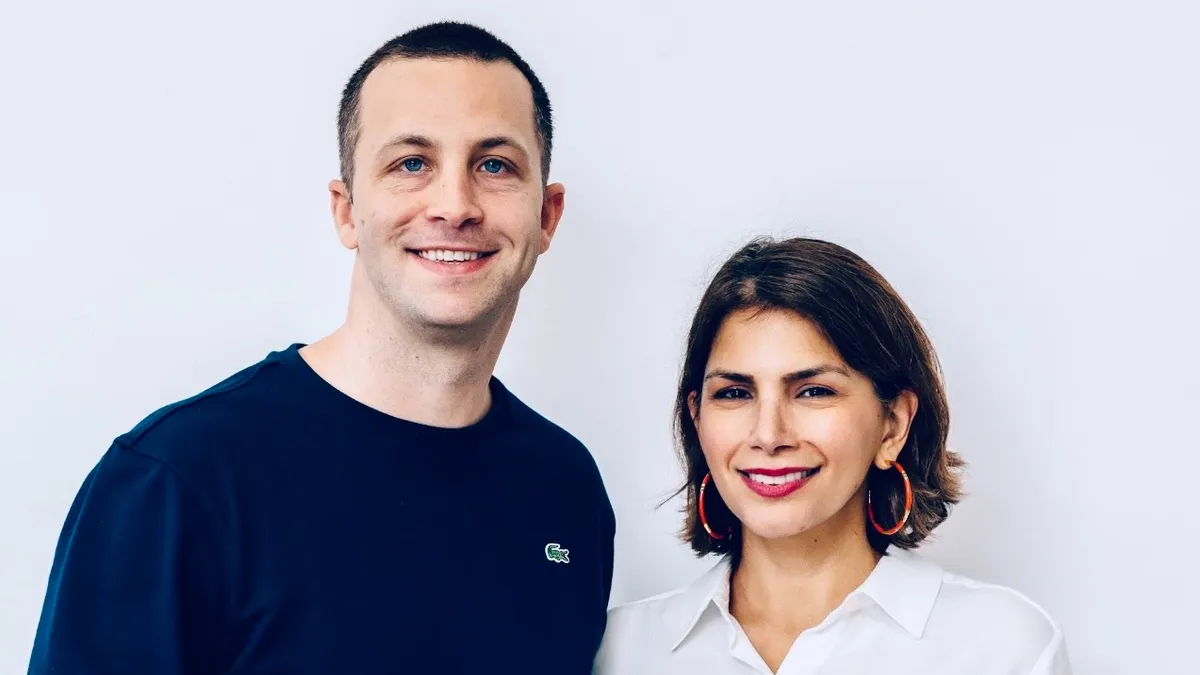A former Citi and Barclays executive is partnering with a fintech entrepreneur to launch a neobank aimed at providing banking services to individuals impacted by incarceration.
Yasaman Hadjibashi and Keith Armstrong are the husband and wife team behind the Dallas-based startup Stretch.
“Our goal is to help people stretch their earning potential, but our mission is to help anyone who's been impacted by incarceration to make and manage money,” said Hadjibashi, who spent 10 years working in consumer banking at Barclays and Citi before making the switch to fintech entrepreneur.
Hadjibashi said she and Armstrong always had a desire to start a company that would have a positive impact on society.
Hadjibashi met Armstrong through a Techstars program in South Africa. Armstrong brings a fintech background to Stretch, having founded Abe.AI, a conversational AI platform that was acquired by Envestnet Yodlee in 2019.
“One key theme we’ve always focused on – he as a fintech entrepreneur, and me as a corporate intrapreneur at two large banks – has always been the lack of attention on helping people make more money rather than just what happens once you get that paycheck and bring it to a bank,” Hadjibashi said. “If you're not making enough money in the world, then throwing another credit product at you, or allowing you to access your paycheck two days in advance is just not the solution to your root cause.”
Through Stretch, Hadjibashi and Armstrong are zeroing in on the specific struggles the formerly incarcerated and their family members face, pain points that are not adequately addressed in the mainstream banking system, Hadjibashi said.
The venture is still in the early stages, Hadjibashi said, adding Stretch currently has less than 1,000 customers.
The startup has rolled out the platform to a limited audience through collaborations with several partner organizations, including the Anti-Recidivism Coalition, based in Los Angeles.
Hadjibashi said she plans to launch the platform to a wider audience by the end of the year.
Through its partnership with Evolve Bank & Trust, the neobank offers a checking account with no minimum balance requirements or monthly service fees.
On the surface, Stretch is not unlike other digital banks that tout free services, but what sets the platform apart is its emphasis on helping members land jobs, a hurdle many formerly incarcerated people face upon release, Hadjibashi said.
“It is an emotional drain on individuals when they send dozens and dozens of resumes to employers and they don't know if they hire former convicts or not,” Hadjibashi said.
Stretch’s app is integrated with Honest Jobs, a platform that helps people with conviction histories find jobs faster, she said.
Stretch also allows members to purchase a course with Ed Hennings, an entrepreneur who spent 20 years in prison before launching his own box trucking business.
“It’s essentially a masterclass to help people, step by step, learn everything they need to set up their own box trucking business,” she said, adding the interest in box trucking as a career is high among the community Stretch is targeting.
“Box trucking is a specific path that doesn't have high barriers to entry. You don't need a commercial driver's license or startup capital. So we're very excited about having launched that with individuals from the community,” she said. “We want to be their partner, help them transition into entrepreneurship pathways that are associated with strong pay, strong economics and that are recession proof.”
In addition to helping the formerly incarcerated secure jobs, Stretch also aims to help bring the demographic into the banking fold.
A 2021 report from the Financial Health Network found that 29% of formerly incarcerated individuals did not have a bank account prior to incarceration.
That figure is more than three times higher than the average unbanked rate over the last 10 years, according to the report.
For individuals who had bank accounts prior to incarceration, many have had their accounts closed due to monthly fees or overdraft fees adding up during the time they served, Hadjibashi said.
This can also create a “negative banking history,” causing some banks to reject applications, she added.
Formerly incarcerated individuals may also struggle to show a proof of residency or proof of identity that is accepted by the relevant service provider, Hadjibashi said.
“There are a number of challenges these individuals go through that make it hard to systemically say it's easy to sign up for a bank account,” she said.
Stretch’s current revenue model largely relies on interchange, the fees collected when account holders swipe their debit cards.
In the future, Hadjibashi said she would like to introduce credit building products and lending to the platform, as well as expand its online entrepreneurship classes.
“If we can help the thousands of individuals and their wider family ecosystems find stability so they can actually go pursue opportunity in life, I think I would be very proud of ourselves and what we've accomplished,” she said.






















